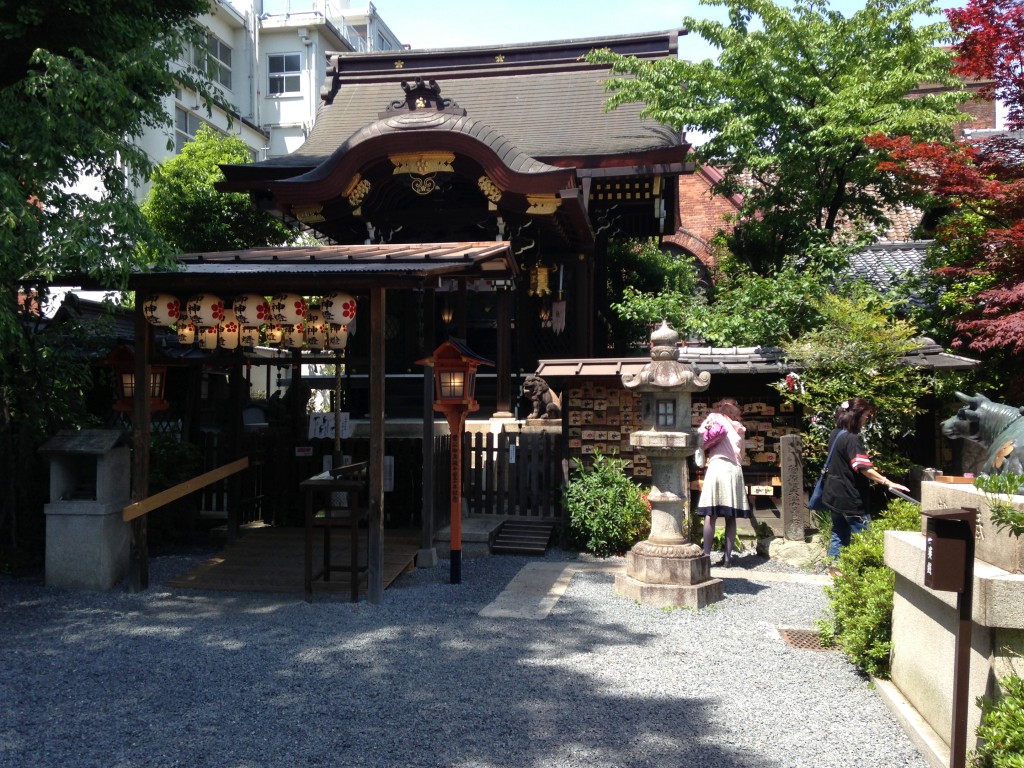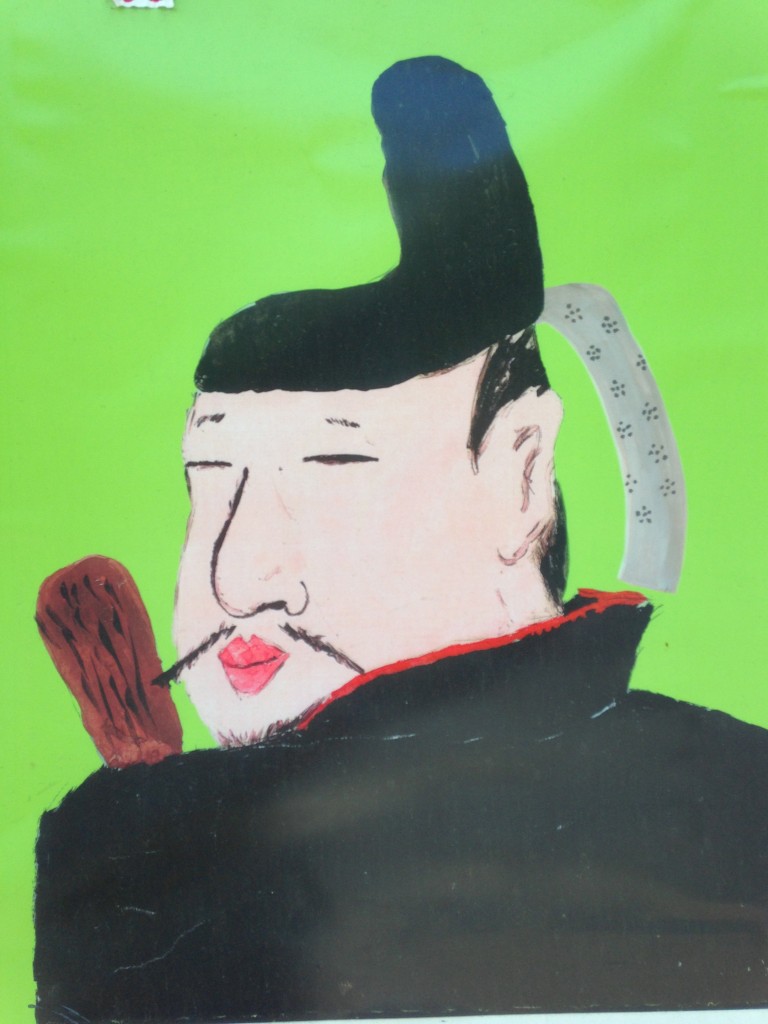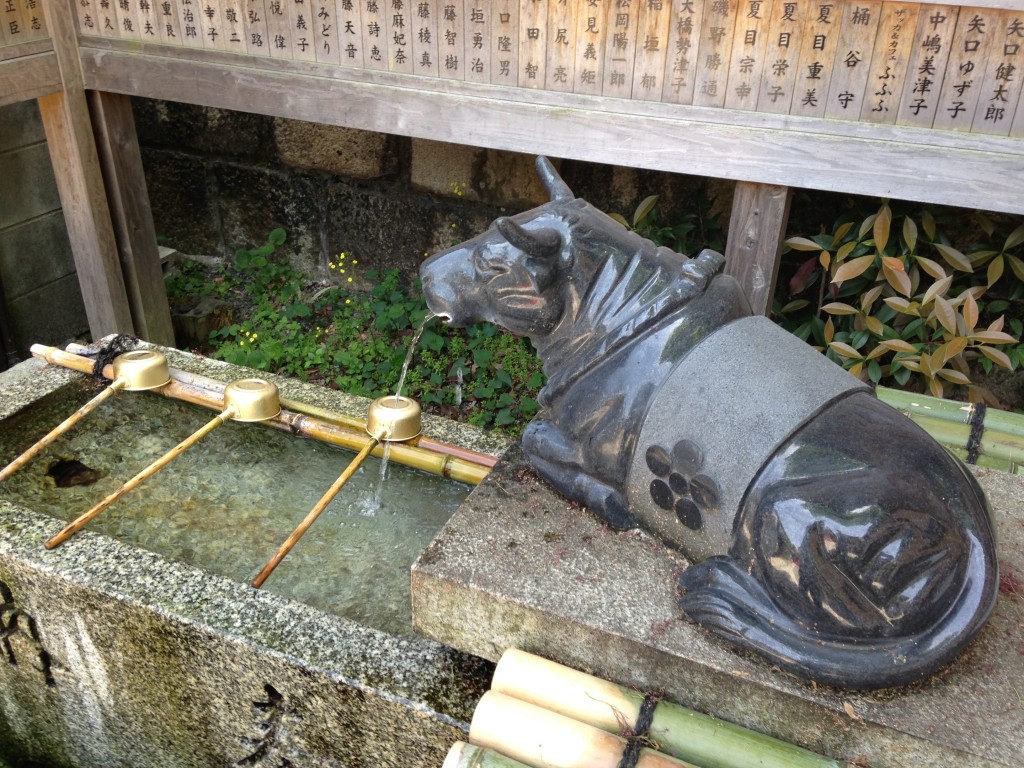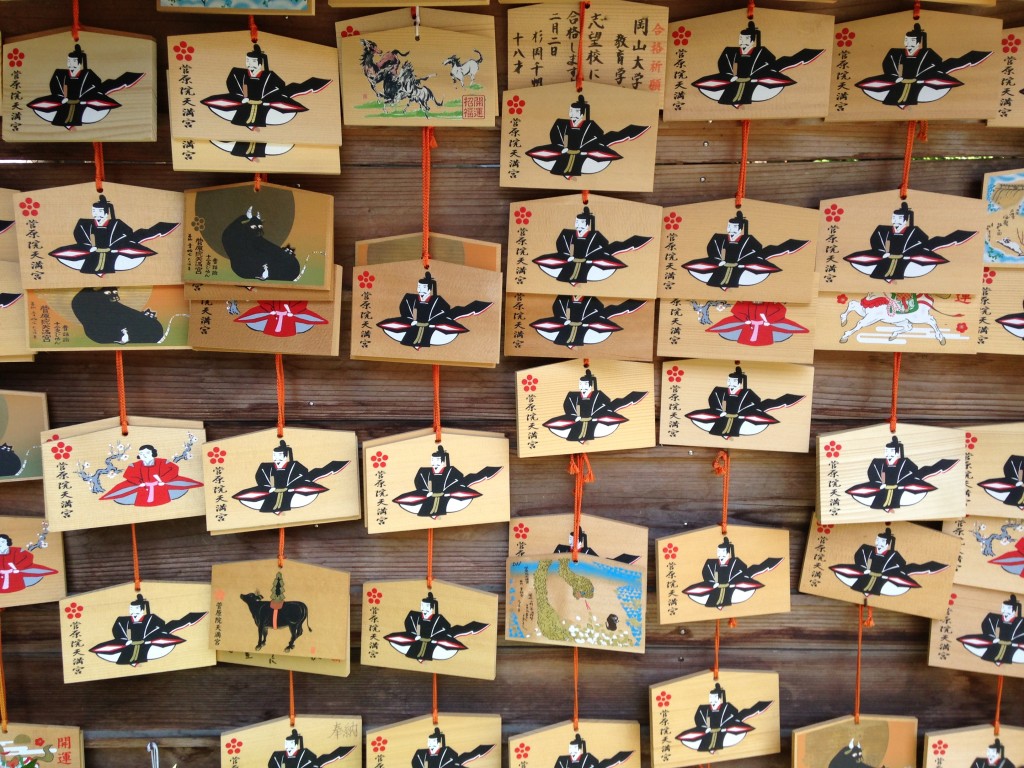
The small Sugawara-in shrine next to the Former Imperial Palace in Kyoto
Shinto is very much an ancestral as well as an animist religion. Many of the leading figures in Japanese history are honoured as part of the national consciousness, and one of the most salient is the statesman, Sugawara no Michizane (845-903). Deified as Tenjin, he’s now one of the three leading kami in terms of numbers of shrines (together with Hachiman and Inari).

Shrine poster of Sugawara no Michizane, whose spirit is the resident kami
The two most famous shrines associated with Michizane are the Kitano Tenmangu in Kyoto and the Dazaifu Tenmangu, where he was exiled. In recent years the location of the house where he was born has been turned into a flourishing shrine too. It stands on the western side of Gosho, the Former Imperial Palace.
I’ve often passed the location, and during the past decade I’ve witnessed its growth from an obscure item of interest, barely noticed by passers-by, into what now looks like something of a tourist attraction. There’s even a lengthy explanation in English, which says that not only was Michizane born at the once expansive estate named Sugawara-in, but his father, grandfather and great-grandfather too.
By the ninth century the villa had been transformed into the Kankiko-ji temple, which was later moved elsewhere. A shrine was built on the remaining structure to honour Michizane as a patron of learning, together with his father and grandfather. The kami are referred to rather endearingly in English as ‘Sir Michizane Sugawara, Sir Koreyoshi Sugawara, and Sir Kiyokimi Sugawara’.
The shrine is the first in a pilgrimage of 25 shrines dedicated to Michizane, and the well used for his first bath and his beloved stone lantern still remain as cherished objects.
**********************************************
Access. The Sugawara-in Tenmangu Jinja is a five-minute walk north from the Marutamachi station on the Karasuma subway line. Phone or fax 075 211-4769.

The Ox water-basin. No Tenjin shrine would be complete without an ox statue, since the animal is the deity's familiar through a legend concerning the ox-cart bearing him at his funeral.

As the patron of learning and poetry, Tenjin is always popular at exam times and for those wishing to achieve succes in scholarship or poetry

Leave a Reply